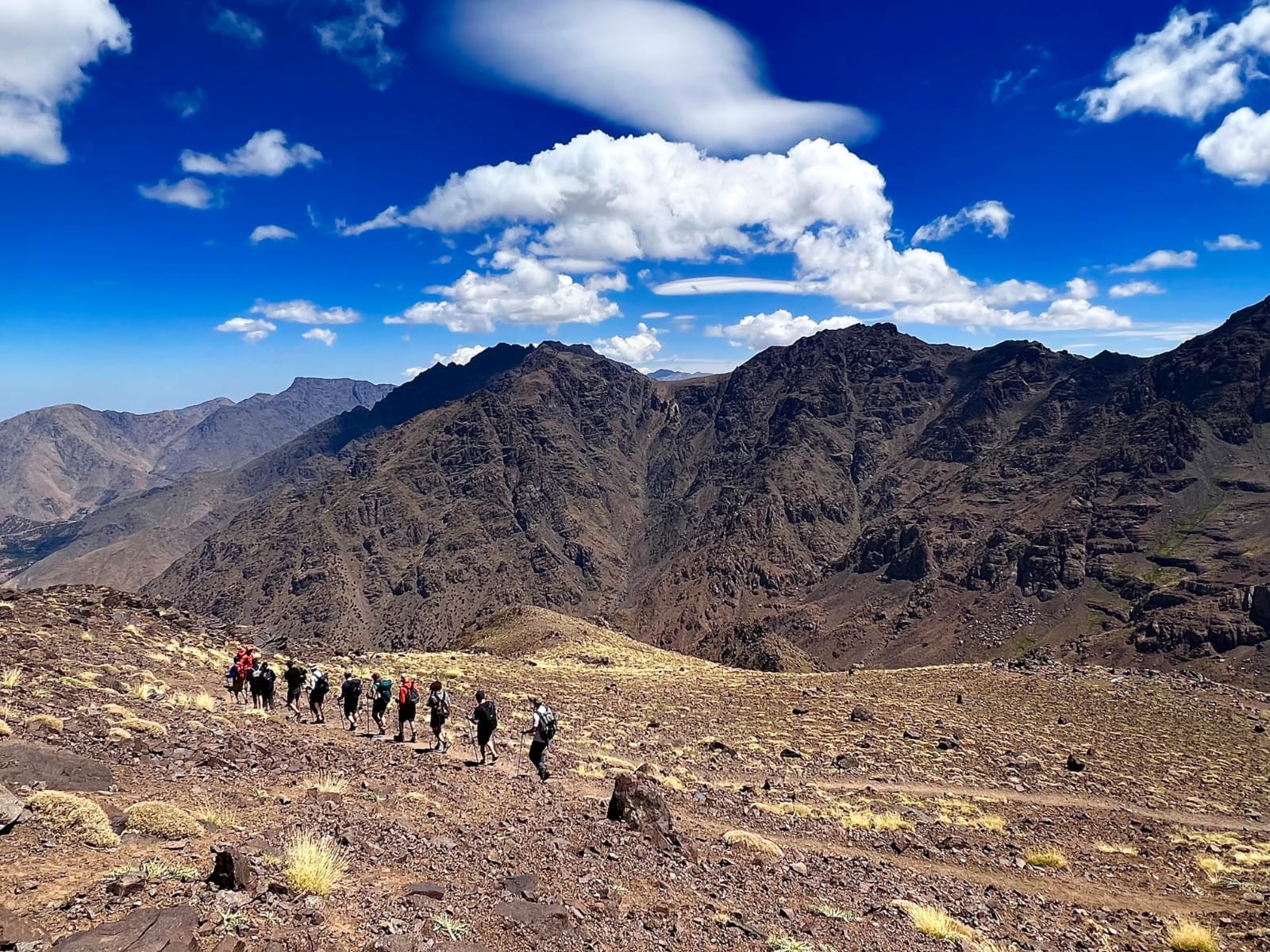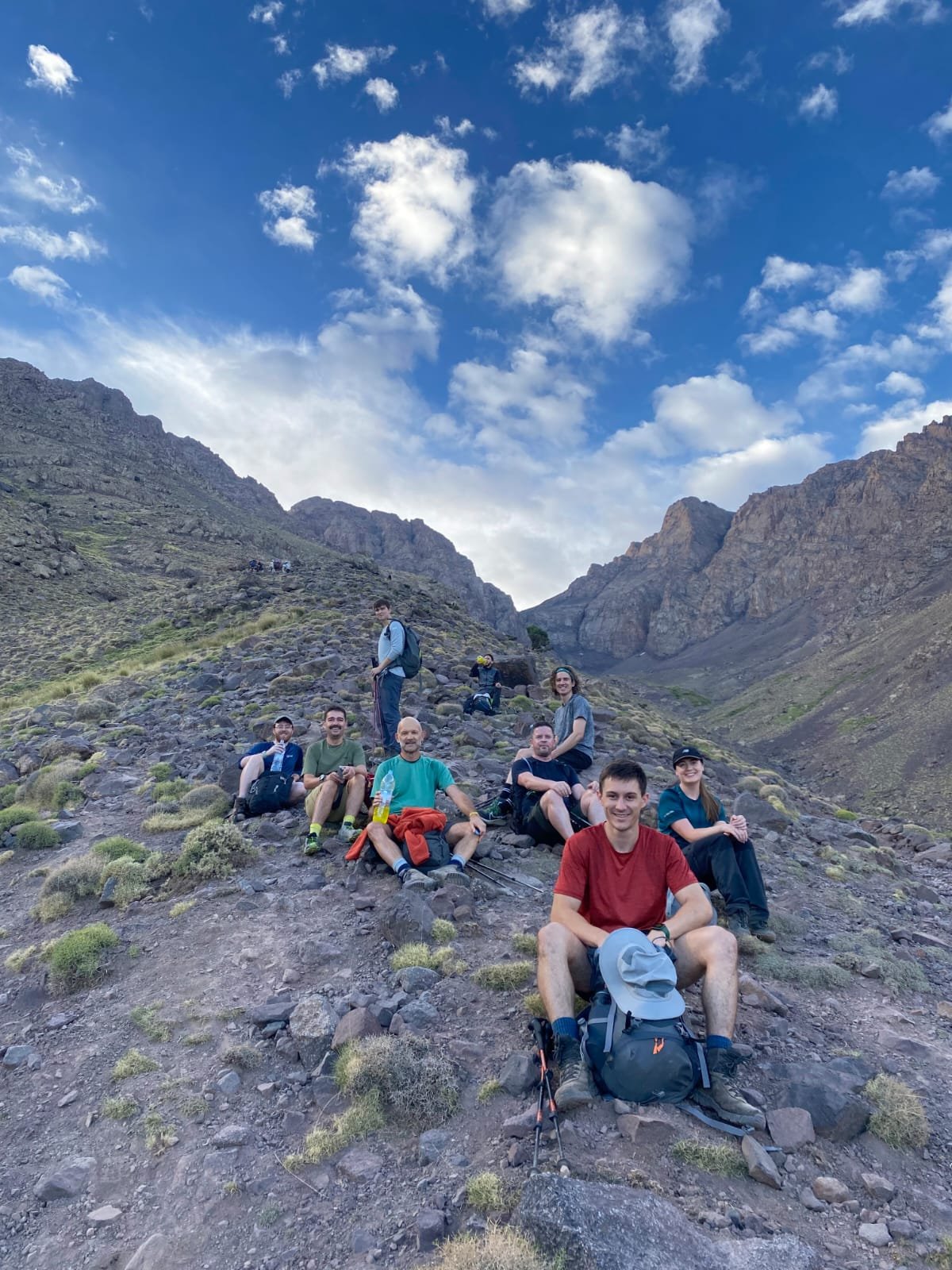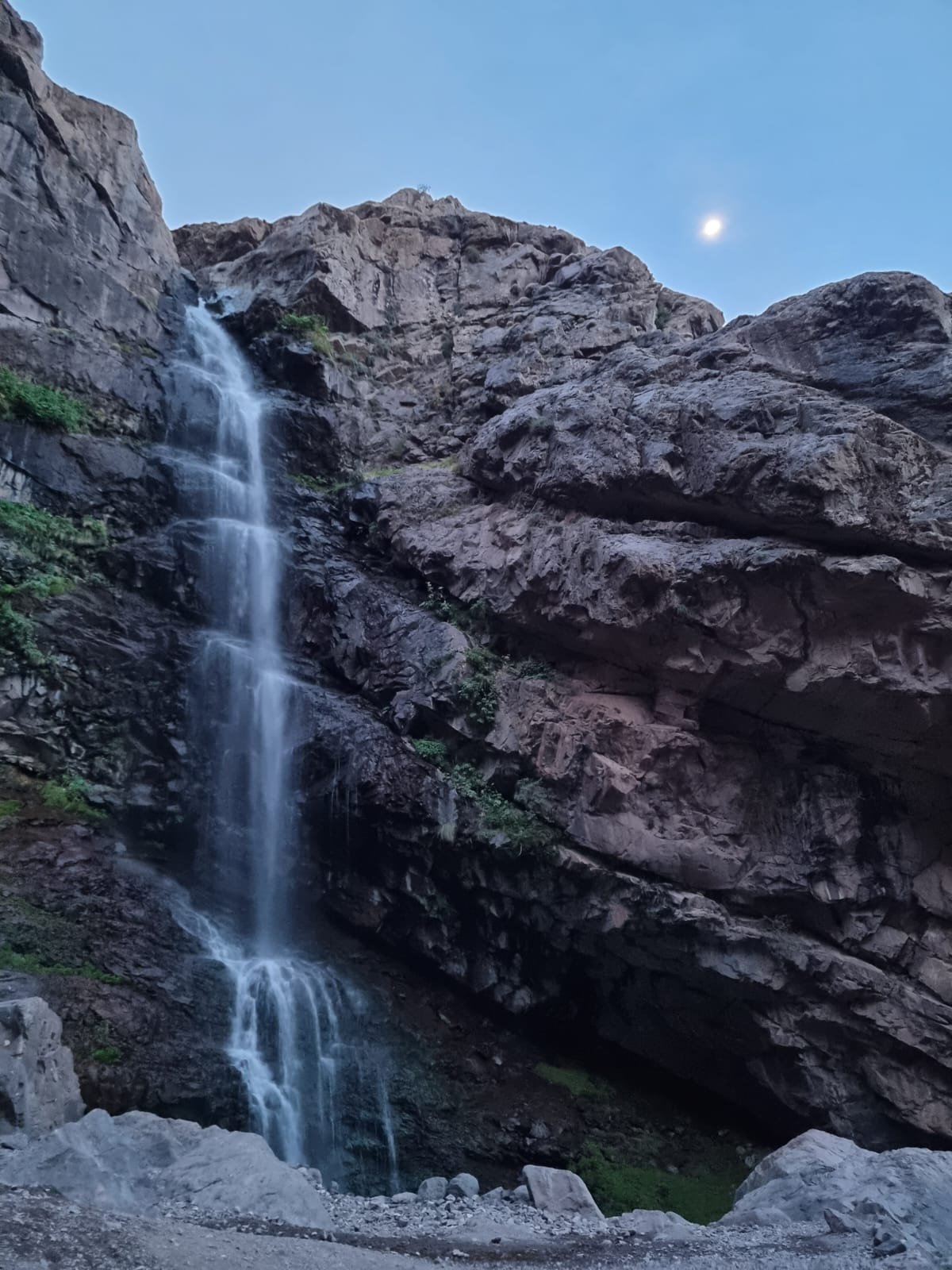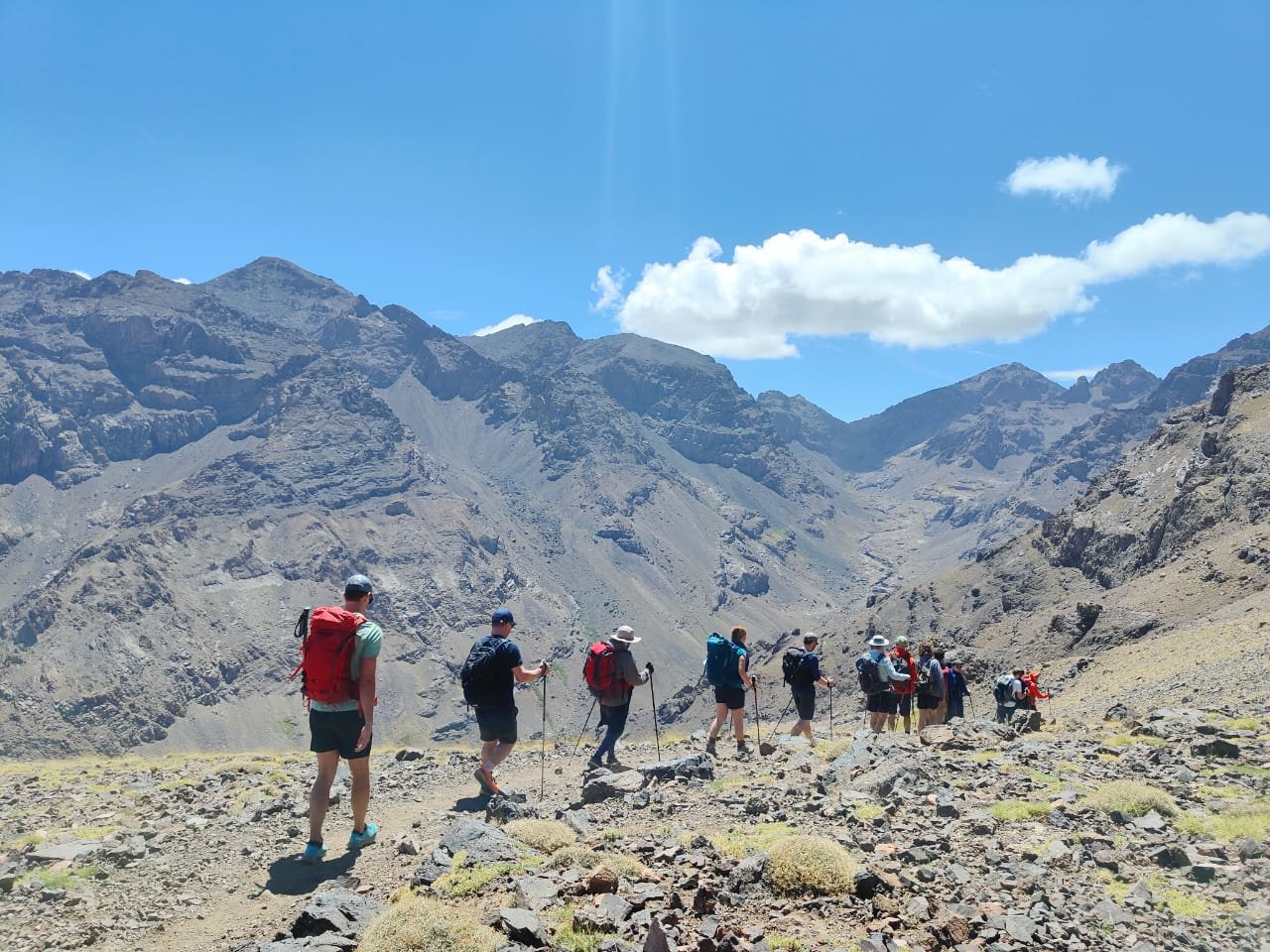Where will your next hiking holiday be? - Morocco
PART 2 - MOROCCO
Whether you only have a weekend or you want to escape the norms of everyday life and immerse yourself with a month long hiking trip we’ve got you covered with ideas, inspiration and even a few trips of our own you could join us on.
Trekking in different corners of the world has its constants, all offer a physical challenge of sorts and a steady release of serotonin, that feel good hormone. However, heading abroad has the added benefit of experiencing different cultures, reaching higher altitudes and getting off the beaten path.
This the second blog in our series and will explain why you should consider Morocco for your next (or first!) hiking holiday.
Atlas Mountains, Morocco
Fancy experiencing a whole new world from the UK but without the hassle of never-ending flights, layovers and jet lag? Morocco is the perfect place for you, with direct flights less than 4 hours long departing from London, Bristol, Manchester and Edinburgh. What's the excuse? Another added benefit is that the flight heads immediately south, conveniently staying in the same time zone but entering a far warmer climate than in the UK. For this reason alone many people have boasted (weirdly) reaching the summit of North Africa’s highest mountain (Mount Toubkal, 4,167m) in less than 24 hours from London. A pretty incredible concept and one which is made possible by the accessibility of the Atlas Mountains on the doorstep of Marrakech.
Ironically, no-one who rushes to the top can mention anything about the views on offer or the culture. Our altitude specialist, Chris, notes that “whilst it may be physiologically possible for most fit and healthy individuals to ascend to 4,000m in this time frame, it is far from advisable.” Most people climbing at this rate will experience symptoms of altitude sickness (AMS), from headaches and nausea to potentially much worse. This risk can be prevented almost entirely by gaining elevation steadily and more specifically not increasing the altitude at which you sleep too dramatically each night. On this accelerated route to the summit, unacclimatised trekkers straight out of London walk to Base camp at 3,150m the same day they arrive in the country. The chance of a good night sleep after shocking your body like this is highly unlikely and trekking performance, mood and general health is certainly compromised the second day whilst reaching for the summit.
Unfortunately, many hikers will fall ill in this instance and local guides will force them to turn around and return to lower altitudes to recover. If they do summit, there is a high chance it wasn’t the most pleasant experience with headaches and nausea at the forefront of the mind and the breathtaking views surrounding the Atlas mountains forgotten. We believe there is more to see than just the summit and it is as much about the journey as it is about the destination. For this reason we would highly advise you take an extra day on the ascent and in doing so make what many do as an out and back route into a circular trek, taking in a range of scenery and getting off the monotonous and dusty caravan route crowded by summit seekers rushing to tick Mt Toubkal off their list ASAP.
Our trek heads west out of Imlil through a much quieter valley scattered with walnut trees and the odd grazing goat, from here we reach a pass (gap in between two mountains) at 2,480m before beginning our descent through slopes dotted with juniper trees to the quaint Azib Tamsoult refuge (2,200m) in the heart of the Atlas Mountains. The refuge lays on a broad ridge surrounded by pastures of seasonal vegetables, picked each day and cooked into a tagine served each evening. This night is a real benefit to the acclimatisation and chance of a successful summit in a couple of days time. The refuge sits 1,000m lower than base camp, where many rush directly to and this night gives our body time to adjust to the reduced oxygen levels as we head further up the following day. The location is stunning and if you’re lucky the dark night skies will produce a star show so bright and vast you will never forget it.
On the second morning the path continues and passes a waterfall crashing from 50m into a small ravine supplying the refuge with a constant source of water. From here, continue winding your way around the mountainside before heading up to a height of 3,550m and our first view towards Mount Toubkal’s summit, tomorrow’s objective. After a bite to eat and a chance to take in the surroundings an easy path descends down and joins the normal route at basecamp (3,200m). A well known phrase in mountaineering, “climb high, sleep low” and this is very much put into practice during this route. Both days involve climbs reaching at least 300m higher than the final destination for the day. Our body becomes aware of the thin air, exaggerated as we are also exercising, encouraging adaptations in how we process oxygen overnight. By sleeping at a lower altitude we allow our bodies more energy to make these changes, having been ‘shocked’ slightly by the extra elevation during the day's hike.
After two nights spent at altitude now and the chance for your body to adapt to new heights an early start is needed in an attempt to summit before the sun’s heat becomes too stifling and allowing plenty of time for the long descent back to the starting point of Imlil (1,800m). Toubkal’s summit day consists of a well trodden but slightly uneven and loose path zig zagging its way up the western side of the mountain. Upon crossing 4,000m expansive views open up as the path flattens out, here it is just a left turn and the final 45 minutes or so to the summit where the iconic steel pyramidal structure awaits for your epic summit photos!
After the summit all that’s left to do is descend back down to the refuge before continuing down the tourist track leading north to Imlil. For you this will be new terrain as you complete your scenic tour of the Atlas mountains via Mount Toubkal. A range of stalls selling fizzy drinks, fresh orange juice, and chocolate, as well as viewpoints will break up the journey and take your mind away from your aching legs.
Once you have completed the trek and returned to Marrakech you should for sure take a day or so to explore this vibrant city. From the hustle of the markets in the medina, to the stunning mosques standing proudly or even the tranquil gardens scattered throughout the city, there’s so much to see.
This is a really brief overview of what you can experience over just a long weekend from the UK. The trek is a challenge but arriving in good physical shape, having exercised regularly is enough to give this trek a go. But of course we would always recommend some hiking specific activities in the run up to a trip like this, short weekends or even day trips into the Lake District or Peak District would stand you in great stead to tackle the trip head on and hopefully without too much huffing and puffing.
Let us know if you have any questions or if you would like to book our 2024 trip to Mount Toubkal or one of our UK based hiking weekends.









